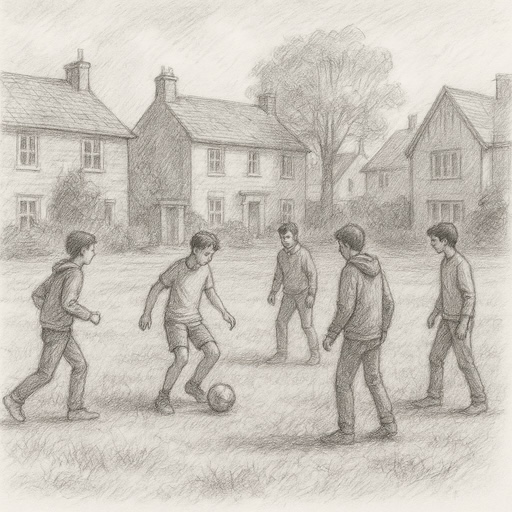What happens when kindness becomes an expectation?
An old man’s peaceful retirement takes an unexpected turn when he befriends a group of kids playing football near his home. What starts as generosity slowly becomes a quiet lesson in expectation management — with a surprising outcome.
There was once an old man who had just retired. He bought a house next to a wide, beautiful field — not his, but a common ground shared by the neighborhood. It was peaceful and quiet, the perfect place to enjoy his retirement.
After moving in, he noticed that once or twice a week, a group of children would come and play football on the field. They weren’t too noisy at first, but he still worried their games might damage his garden if a ball flew over the fence. Instead of complaining or trying to stop them, the old man went out to watch. He smiled, praised their skills, and showed genuine interest. The children were happy to be seen and encouraged — they started coming more often.
As summer arrived, the old man began stocking his fridge with cold drinks and snacks. After playing, the children would come by, and he would offer them refreshments. They were thrilled, and his home became part of their routine. But after a few months, the old man sat them down and said, “My pension isn’t very much, and I can’t keep buying drinks and snacks every time. But I still love seeing you all play. You’re always welcome.” The children smiled politely, but deep down, they thought: “If there’s no more drinks or snacks, why should we keep putting on a free show for this old man? We might as well go somewhere else, somewhere closer.” And so, they stopped coming.
The old man didn’t argue or chase them away. He had created an expectation, and when he gently stepped back, the expectation dissolved on its own. The children left — and peace returned.
Through quiet expectation management, he found the life he had hoped for.
This story illustrates how expectations, once created, can shape behaviour more powerfully than rules or restrictions. The old man never asked the children to stop playing — instead, he built an environment where they naturally adjusted their own actions based on what they expected to receive.
By consciously creating and then stepping back from those expectations, he managed the situation without confrontation, complaint, or control. Expectation management, in this case, became not just a passive acceptance of change, but an active strategy — calm, subtle, and remarkably effective.


